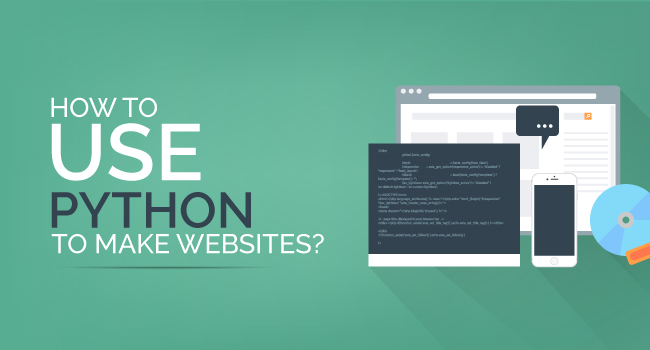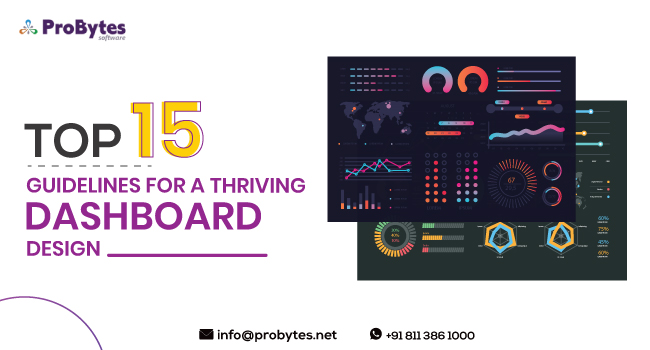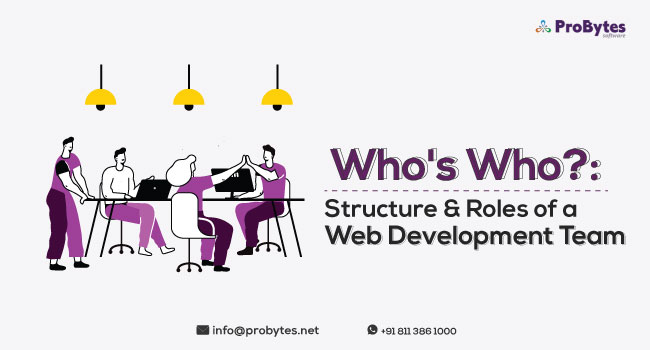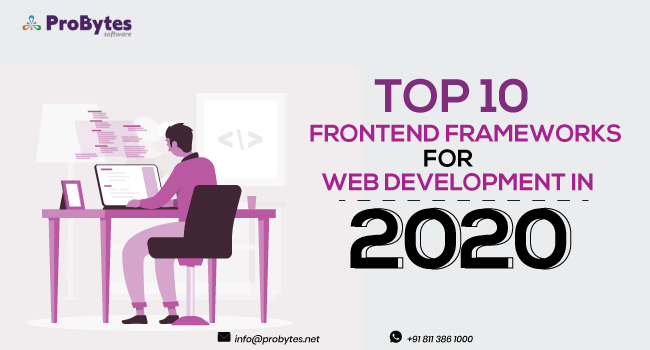Blog Category(283 Blogs)
Drupal Vs WordPress- All you Need to Know
Drupal Vs WordPress – It’s a point that all developers ponder over when they start strategizing a website development plan.
The content management system (CMS) is the backbone of the website, and hence deciding on the right one can determine the look and function of your website.
In this blog, we will look into the major similarities and differences between these two popular CMS.
Drupal Vs WordPress – Similar Features
Both Drupal and WordPress are open-source platforms that can be developed and customized as per your requirements. These two content management systems boast of a strong community of developers.
Read Also: Insane Features of WordPress 5.0 Gutenberg Editor
Another point of similarity is that the two CMS have user-friendly interfaces with propriety solutions. Also, both these platforms have Schema.org that allow you to hard code templates or add schemas to the website framework.
Before we go into the technical details of Drupal Vs WordPress, let’s take a look at the famous websites that are powered by these content management systems.

Websites that have Drupal CMS
- economist.com
- tesla.com
- wmg.com
- wholefoodmarket.com
- nasa.gov
Websites that have WordPress CMS
- techcrunch.com
- time.com
- nationalarchives.gov.uk
- thenewyorker.com
- sony.com
Drupal Vs Word Press – The Differences
Stats
Drupal was launched in 2000 while WordPress was launched three years later in 2003. Though Drupal is an older system, WordPress seems to be the more popular one.
A market study shows that Drupal websites account for around 3 to 4% of global websites while WordPress supports around 35% of websites.
Interface and Learning Curve
While discussing the merits of WordPress Vs Drupal, the first thing that most developers talk about is the interface and its ease of use. WordPress is a beginners-friendly website, which means even those with nil or minimal coding knowledge can build a website using WordPress CMS.
However, you will need to have coding knowledge of HTML, CSS, and PHP while using Drupal. WordPress has WYSIWYG Theme Customizer and Gutenberg editor, which you can use to create a theme.
Another argument that Drupal is a little difficult for beginners is because of its Drupal nodes and relationships. A developer needs to have an in-depth understanding of the blocks, views, content types, and taxonomies to use the Drupal CMS.
Security
While the WordPress CMS scores high in terms of user-friendly features, Drupal ups the ante with its security features. Statistics show that WordPress sites are more prone to hacks compared to Drupal sites.
Read Also: Why WordPress Rules the World of CMS?
However, the core of the WordPress website is quite secure. It is the plug-ins and extensions that are not coded properly, which could make your website vulnerable to cyber attacks. The latest version – Drupal 8 was released recently.

This version has more security features than the previous version of Drupal 6. Plus, it has community support. So, if you are already using a Drupal CMS or planning for it, go for the updated version.
While opting for Drupal CMS, if you go for Pantheon or Acquia hosting, you can also protect your website from server hacks.
Themes and Plug-ins
When it comes to themes and plug-ins, WordPress has the lead with nearly 6800 free themes. Drupal, on the other hand, has only about 2700 themes. Also, WordPress has a whooping 54,000 plug-ins whereas Drupal has nearly 42,000 plug-ins.
It’s not just the numbers that tilt the scales in favor of WordPress, but also the ease with which these themes, plug-ins, and extensions can be incorporated into the website framework. Integrating plug-ins and extensions in Drupal CMS is a little difficult and time-consuming.
Speed
When it comes to website loading speed, Drupal CMS is a clear winner. WordPress sites are also fast, but when we compare both, we find that Drupal sites are faster. When the loading speed is high, your website performs well on search engines and also ranks higher.
Mobile Interface
WordPress has a native mobile app that allows you to edit content right on the mobile device itself. This option is not available with Drupal as it doesn’t have a native mobile app. Other than this fact, both the content management systems have dedicated themes and interfaces for the mobile device.
Search Engine Optimization
Every website wants to rank high on the search engine results. With a higher loading speed, Drupal has a better performance on the search engines. But, WordPress is more mobile-friendly, which improves search engine ratings.

In terms of SEO, it is difficult to say which of the two platforms is the winner. However, WordPress has an edge because the margin of errors that could arise during development is lesser. This in turn, impacts the website’s performance on search engines.
Database and Code
In WordPress, the code and the database are regularly updated, approximately once in 3 to 4 months. When a release happens, WordPress automatically updates the database and code in the background without affecting your website.
However, you may have to update the plug-ins, if necessary. In Drupal, the code is not upgradable, but the database is. So, if there are any upgrades, then you may have to redesign the website and re-write the code if needed.
Flexibility and Customizability
WordPress has plenty of flexibility with customizable themes and extensions. Though Drupal also has plenty of themes and modules, finding the right one and customizing it for the website is a little daunting. Developers can easily explore the different themes and functions in a WordPress CMS.
Functionality
In terms of functionality, Drupal is better suited for complex apps. It also has advanced functionality, which makes it a good option for enterprise websites that have multiple templates or page types.
The user permissions are also more advanced in Drupal than WordPress. Drupal allows you to customize content access to site admin, content editors, and other stakeholders. It enhances security and privacy.
Affordability
The cost is the major determining factor. Both the content management systems are open source and free to download. However, you may have charges for customizations.
Read Also: 7 Reasons to Switch from Drupal To Yii
You will also incur expenses in building a website. If you are planning to outsource your website development, then you should know that Drupal developers charge higher than WordPress developers. It is because Drupal requires higher coding expertise than WordPress.

Drupal Vs WordPress – The Comparison Table
The below table will give you a summary of the differences between the two huge content management systems – Drupal and WordPress
| Features | Drupal | WordPress |
| Installation Time | 10 minutes | 5 minutes |
| Free Themes | Around 2700 | Around 6800 |
| Languages | Nearly 100 | Nearly 70 |
| No. of plug-ins | Approximately 42,000 | Approximately 54,000 |
| Requires coding skills | Yes, requires basic knowledge of CSS, PHP, and HTML | No |
| Ease of Use | Moderate | Easy |
| Security | High | Moderate |
| Loading Speed | High | Moderate |
| User Interface | Tad difficult | Easy to use |
| Responsive Design | Responsive sizes can be set in the Image Style module | functions.php file has the image sizes breakpoints |
| Suitable for | Web applications and enterprise-level websites that require very high-security features | Blog sites and simple websites |
Conclusion
Drupal and WordPress, both have their own sets of pros and cons. You need to choose a content management system based on the web application that you are planning to develop.

Go for the Drupal CMS, if you are want to build an enterprise website with high security. Also, Drupal is an ideal choice if you are planning to hire a developer or outsource website development to a website development agency.
However, if you are looking for a simple and effective blog site or website, you can use the WordPress CMS. To customize the features of the WordPress CMS and enhance its security features, you can avail the services of a website development company.

 Python
Python Magento
Magento Odoo
Odoo How To
How To How Much
How Much Yii Development
Yii Development Core PHP
Core PHP Prestashop
Prestashop Latest News
Latest News Education
Education Web Design
Web Design Business
Business Ecommerce
Ecommerce Travel
Travel Banking and Finance
Banking and Finance Web Development
Web Development Ruby On Rails
Ruby On Rails Joomla Development
Joomla Development Ecommerce
Ecommerce Magento Development Services
Magento Development Services Hire a Developer
Hire a Developer Web Crawling Services
Web Crawling Services











